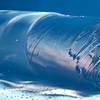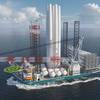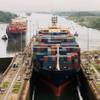ClassNK Guidelines for Wind-Assisted Propulsion
Classification Society ClassNK has released its Guidelines for Wind-Assisted Propulsion Systems for Ships.
Environmental regulations continue to tighten, and as the IMO has announced its goal to completely eliminate GHG emissions within this century, technology using wind power for auxiliary propulsion is attracting attention as one of the underlying technologies for accomplishing this. In addition to the sails used on sailboats in older times, systems in which boats are dragged along by a large kite and the wind it receives, and systems which take advantage of the Magnus effect(*1) to generate lift force by rotating a cylindrical piece of equipment on the deck have been developed. Some of these are already being practically implemented, and wind-assisted propulsion systems for ships are developing further every day.
In light of the situation, ClassNK has developed its Guidelines for Wind-Assisted Propulsion Systems for Ships in order to contribute to the safe integrity and design of this technology and the ships that are installed with it. In addition to verifying structural strength, outlining methods for proving structural integrity of strength members, and utilizing calculation methods for load amounts, the guidelines provide class notations for ships whose equipment is designed and installed in line with the guidelines. The contents of the guidelines will be consistently revised in following the developmental progress of the related technology.
Speaking on the occasion, Mr. Hayato Suga, Corporate Officer and Director of Plan Approval and Technical Solution Division said “Once wind was main source to propel ships and the technology utilizing wind is emerging again to energize ships’ environmental performance. a variety of concepts for wind-assisted propulsion systems, ClassNK has materialized its expertise to minimize potential risks by their installations to hull structure, crew, and surrounding environment. To promote the safety and soundness of designs applying wind-assisted propulsion system, we will keep on updating our guidelines in line with further technology progress as well as providing the certification on individual systems or concepts.”
The Guidelines for Wind-Assisted Propulsion Systems for Ships are available to download free of charge via ClassNK’s website.
(*1) A phenomenon in which lift perpendicularly affects the flow of a spinning cylindrical column or sphere











